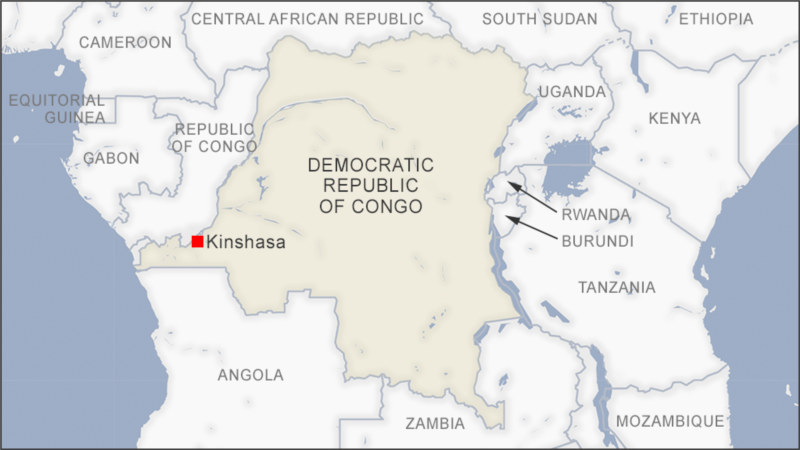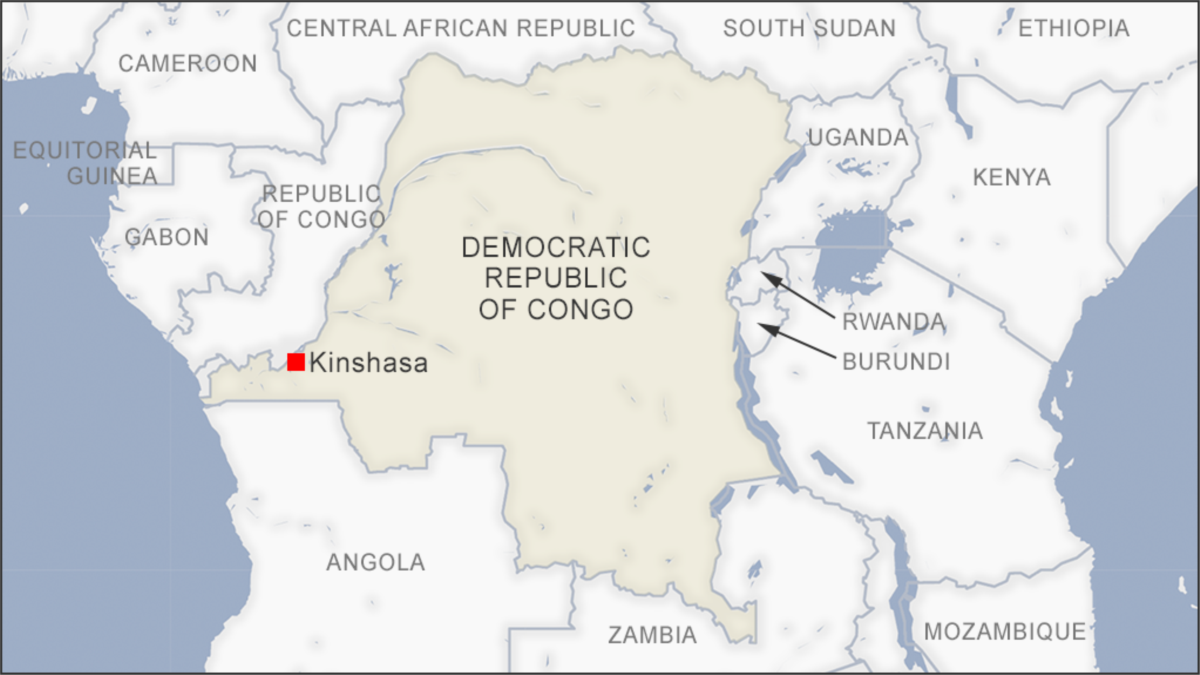This website uses cookies so that we can provide you with the best user experience possible. Cookie information is stored in your browser and performs functions such as recognising you when you return to our website and helping our team to understand which sections of the website you find most interesting and useful.


Nairobi, Kenya —
A human rights group says the Democratic Republic of Congo's government is blocking opposition parties from campaigning ahead of December elections and trying to intimidate the party leaders.
Human Rights Watch says it has documented a surge in political violence as well as growing incidents of arbitrary arrests, abductions and threats against political rivals.
The group says authorities in the DRC are targeting opposition leaders and groups, curtailing their freedom, and arresting officials ahead of the December general election.
HRW's DRC senior researcher, Thomas Fessy, said opposition parties find it difficult to even hold a rally.
"Opposition leaders and their supporters have seen their rights to freedom of expression, association, peaceful assembly and movement severely restricted with demonstrations either violently broken up by the security forces, banned or prevented from taking place, and some political party officials of the opposition have been arrested and detained sometimes by the intelligence services and their rights to due process not respected," said Fessy.
Moise Katumbi, a presidential contender, was barred in May from visiting Kongo-central province, where he had planned political meetings and rallies to publicize his party and candidacy. Authorities cited "security reasons" for disallowing the trip.
Days later, police blocked four opposition candidates and their supporters from gathering at the electoral commission offices in Kinshasa to protest what they termed a chaotic electoral process.
Last month, Cherubin Okende, a member of parliament and spokesman for Katumbi's political party, died of gunshot wounds in the capital. Okende had joined Tshisekedi's main challenger, Katumbi, late last year.
Opposition parties suffer
Assani Kizunguruka is a member of the former ruling party, the People's Party for Reconstruction and Democracy. He told VOA that opposition parties in the country are suffering.
"As of now, the political environment is not as we were expecting," he said. "Everyone was hoping for strengthening democracy and freedom of expression and all that. But what we have seen at this time, we have seen the declining of the political environment, whereby the opposition didn't have its space as well as the freedom of press. We have a lot of journalists now who are in prison. We have a lot of opposition leaders who are now living abroad."
The incumbent, Felix Tshisekedi, is seeking a second five-year term. He was declared the winner of the 2018 presidential vote with 38 percent of the vote, though many, including his opponents, disputed his win.
Election not 'inclusive,' 'transparent'
The United Nations said the narrowing of the civic space, the arbitrary arrests, and detentions risk damaging the credibility of the electoral process and political violence.
Kizunguruka said the existing political climate does not promote free, fair and credible elections.
"It's not very helpful," he said. "And we're not really seeing an election that will be inclusive. We are not seeing an election that will be transparent. We're not seeing an election that will really fulfill all the requirements for a democratic election. So we are really very doubtful of the outcome of this election as the opposition party."
Fessy said authorities must give opposition groups free space to operate so the country can have a credible election.
"The Congolese government should urgently reverse course or risk escalating tensions," said Fessy "Arresting those close to opposition leaders and preventing them from moving around the country or from organizing political rallies and demonstrations sends a frightening message, really, ahead of the official electoral campaign."
The government's minister of information, Patrick Muyaya, did not respond to a request for comment. Back in June, the president said he would target without hesitation any Congolese who endanger the security and the stability of the country.



 Africana55 Radio
Africana55 Radio 
